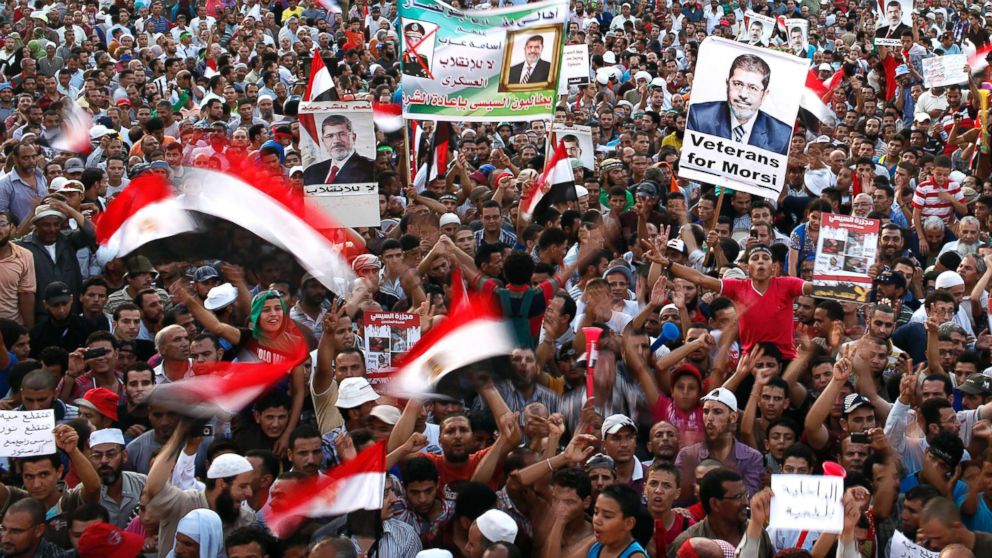[ad_1]
A New York City taxicab driver, a U.S. citizen, who was arrested in Egypt when he went to visit his wife and children has been sentenced to 15 years in prison in a case his lawyers call “bogus” and “a disgrace.”
Interested in Egypt?
Add Egypt as an interest to stay up to date on the latest Egypt news, video, and analysis from ABC News.
Moustafa Kassem, whose sentencing on Saturday came in a mass trial with more than 700 co-defendants, was convicted of trying to overthrow the government of Egyptian President Abdel Fattah el Sisi.
He has already been held in Egyptian jails for five years, since his arrest in August 2013 at a checkpoint in Cairo while visiting his wife and two children, then 3 and 6 years old. He was out shopping when security officials detained him, accusing him of being part of protests in a nearby square against a military takeover led by then Gen. Sisi, Kassem’s lawyers said.
One of Kassem’s lawyer called the charges against his client “bogus” claims against “an innocent American.”
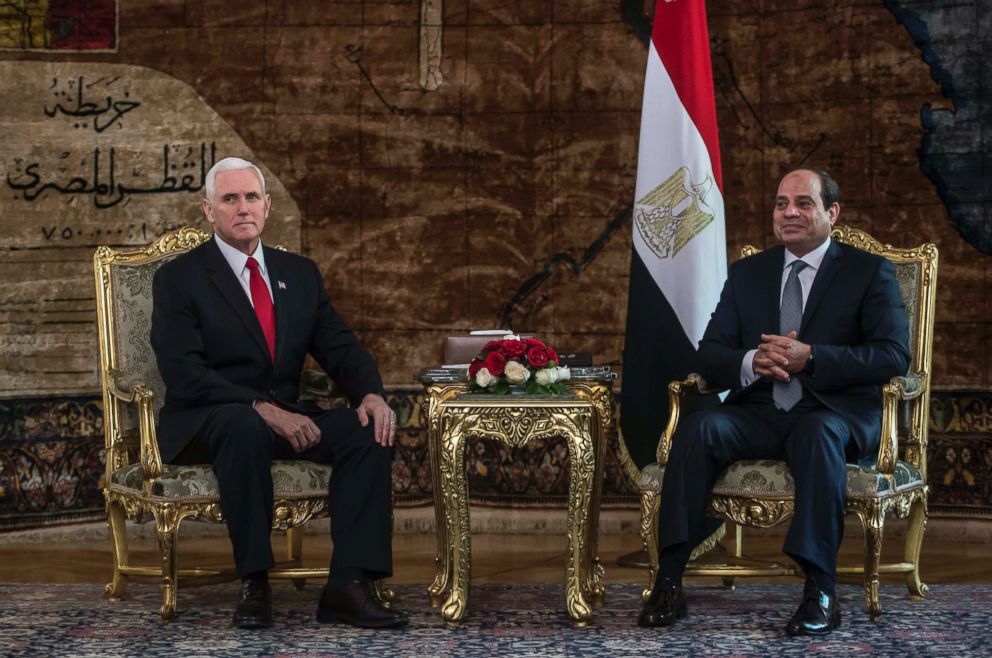 Khaled Desouki/AFP/Getty Images, FILE
Khaled Desouki/AFP/Getty Images, FILE“What a disgrace,” said lawyer Praveen Madhiraju, who is executive director of Pretrial Rights International. “The White House and State Department should not sit idly by when so utterly disgraced by an ‘ally,'” Madhiraju added.
The Egyptian embassy and the White House have not yet responded to ABC News’ requests for comment. A State Department spokesperson said it is “deeply concerned by the conviction” and has raised his case “repeatedly with the Egyptian government.”
“The Department of State takes seriously its responsibilities to assist U.S. citizens abroad,” the spokesperson said. “We will continue providing appropriate consular services.”
Kassem’s case has been followed by the Trump administration, with Vice President Mike Pence saying he raised it directly with Sisi when the two met in Cairo in January.
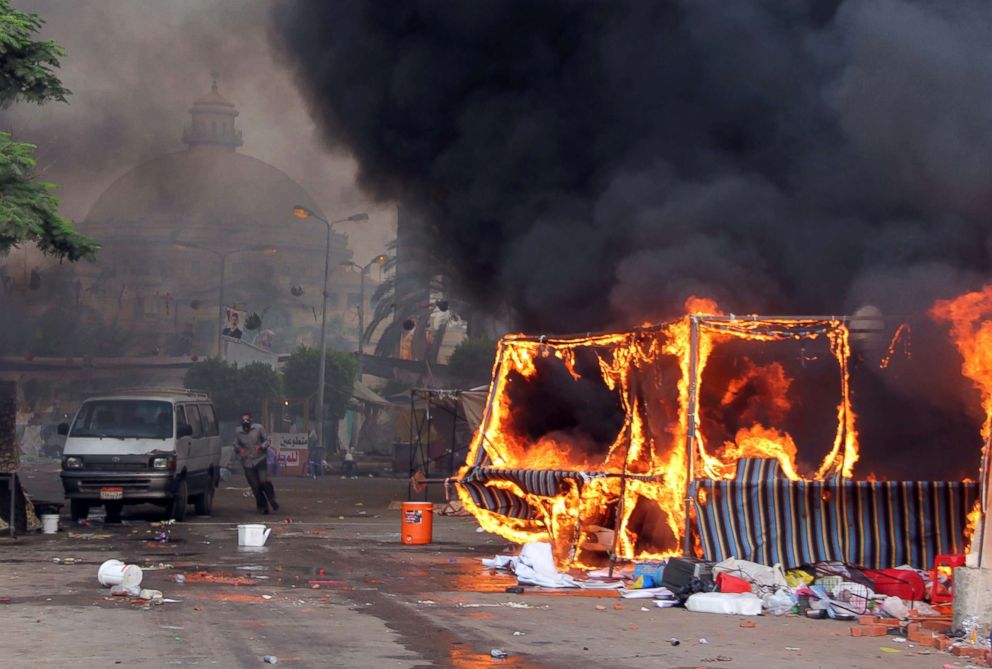 Hassan Mohamed/AFP/Getty Images
Hassan Mohamed/AFP/Getty ImagesThe administration has made a noted priority of freeing Americans unlawfully detained abroad. But Pence’s appeal was not enough to free Kassem at the time or help him avoid a conviction now.
Kassem is just one of several U.S. citizens currently held by Egypt, swept up in Sisi’s enormous crackdown on political opposition and civil society since the military took power following days of protests against the democratically elected government of Mohamed Morsi.
While there are about 20 Americans in Egyptian jails, there are as many as 60,000 political prisoners, according to a Human Rights Watch report last year.
Sisi has 10 to 12 times as many political prisoners as former Egyptian strongman Hosni Mubarak, who was forced out in the 2011 Arab Spring, according to a Freedom House report in 2006 during Mubarak’s reign.
Saturday’s mass trial resulted overall in 75 people getting sentenced to death and over 600 to prison for the August 2013 protest that was put down by security forces in what human rights groups say was the single deadliest incident in Sisi’s sweep to power, with as many as 800 killed.
Kassem, 53, is diabetic with a heart condition.
But in Egyptian jails he has been denied regular access to medical treatment, including insulin, his lawyers said. Multiple requests by his family to have him hospitalized have been denied or simply ignored by Egyptian authorities, according to his lawyers.
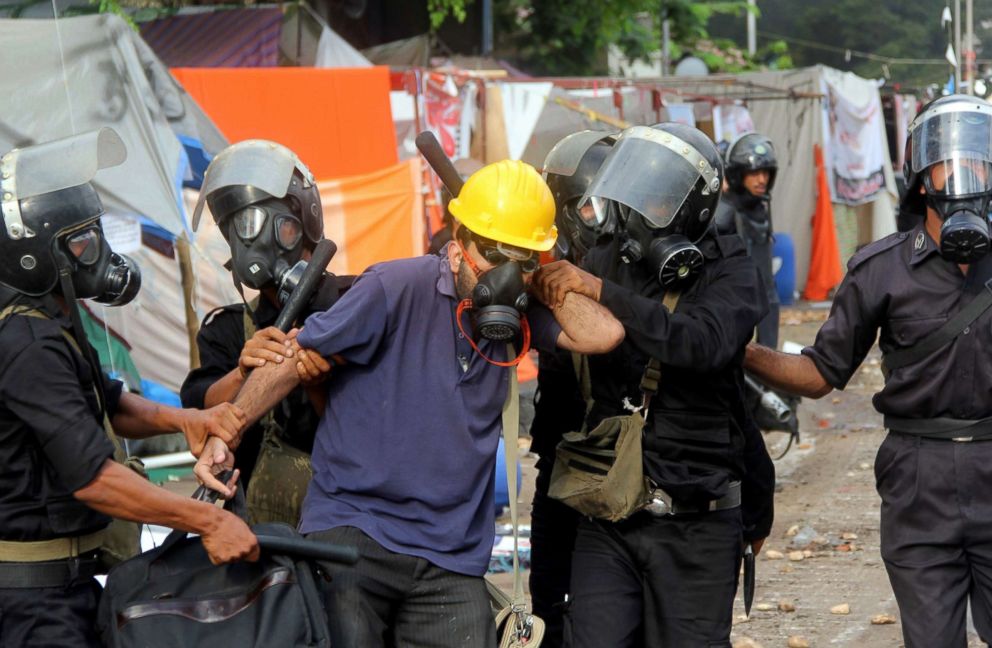 Hassan Mohomed/AFP/Getty Images
Hassan Mohomed/AFP/Getty Images“Moustafa can only be so strong,” his sister Iman Kassem said in a statement Saturday. “For his children and to prevent another tragedy, we urge President Sisi to release and pardon Moustafa immediately and for U.S. authorities to help see him home.”
Without that treatment, Kassem has experienced frequent body tremors, lost control of his extremities temporarily, and had his vision worsen.
“It is not clear how much longer he can survive” in detention, his lawyers warned in a petition to the United Nations Working Group on Arbitrary Detention last month.
When Kassem was arrested and presented his U.S. passport, his lawyers say he was beaten, accused of being a spy, and charged with intent to cause chaos and overthrow the government for his alleged involvement in the protests.
The Egyptian government had been seeking the death penalty for him, too.
Along with the more than 700 other defendants, he had his detention renewed en masse every 45 days for more than five years, according to his lawyers, even though Egyptian law allows for pretrial detention of only two years.
Among the others convicted and sentenced Saturday for their alleged roles in the protests are famed Egyptian photojournalist Shawkan, who was covering the protests, as well as several senior Muslim Brotherhood leaders. Cases were dropped against five people who had died while in prison, judicial sources told the news agency.
The Trump administration has been accused of going soft on Egypt, with a tight bond and warm words between strongman Sisi and President Trump.
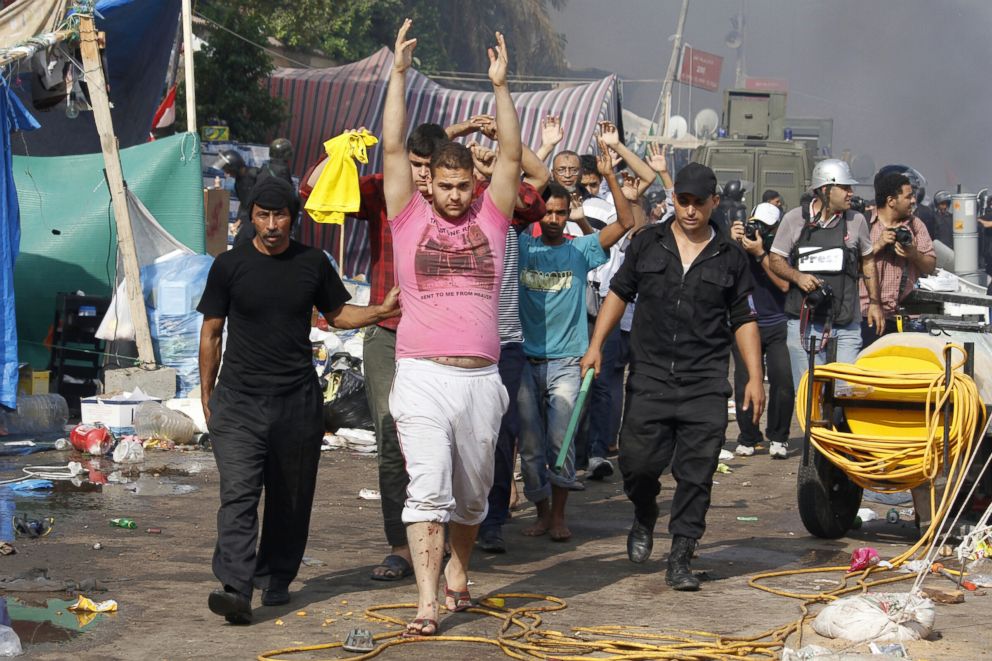 Mohammed Abdel Moneim/AFP/Getty Images
Mohammed Abdel Moneim/AFP/Getty ImagesIn July, the State Department announced it was releasing $195 million in aid to Egypt that had previously been withheld over human rights concerns.
Despite Egypt taking no noticeable steps to address human rights issues, the State Department said it was providing the aid “in the spirit of our efforts to further strengthen this partnership,” an official told ABC News.
The U.S. effort has at times yielded some rewards. In April 2017, Egypt freed Aya Hijazi, a U.S. citizen and humanitarian aid worker, her husband Mohamed Hassanein, and four others after Trump and top aides urged Sisi to do so as a gesture of goodwill.
But even then, Trump seemed to blame ousted President Morsi for her detention, according to Hijazi.
Morsi is a member of the Muslim Brotherhood, a political party with support throughout the Middle East that is seen as a terrorist network by some in the U.S.
Hijazi told PBS Newshour that Trump had a “conviction” that Morsi’s government arrested her, not the strongman Sisi whom the U.S. president described as “a fantastic guy” just days before Hijazi’s release.
[ad_2]
Source link

